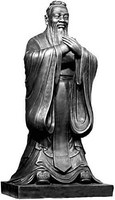 I am one lucky mother…I love the sun, and I live in Southern California. But like many people, believe it or not, I sometimes neglect my sun needs. Nothing is crazier, I know, when so many regions are sun-deprived for much of the year. It’s the equivalent of “starving children…” in the guilt-trip-you-for-not-doing-something-you’re-supposed-to-category. But, believe me, we pay the price for our negligence.
I am one lucky mother…I love the sun, and I live in Southern California. But like many people, believe it or not, I sometimes neglect my sun needs. Nothing is crazier, I know, when so many regions are sun-deprived for much of the year. It’s the equivalent of “starving children…” in the guilt-trip-you-for-not-doing-something-you’re-supposed-to-category. But, believe me, we pay the price for our negligence.
I had been feeling not so great recently, and frankly I was perplexed. I had been working out regularly; in fact, it was first time in long time I have been completely injury-free. Shoulders felt good. Low back good…I was eating well. Lots of vegetables; good portions. Juicing. Quit coffee, so sleeping much better than…ugh months. On purpose professionally and within my dharma…but somehow, I was not feeling “myself”. I was starting to wonder if this aging thing really has something to it. I have never been an ageist. I just believe that you can be in the best shape of your life at any age. I really do. But I was tired, a little blue, and skin as white as some new veneers. I said to myself, “This year, I am going to channel Apollo.” I will commit to daily sun for the entire summer—beach, canyons, festivals, everything, bikes, stilts, pogo sticks, you name it. No more Mr. Pasty guy. Not this year.

So I started last week at the local swimming pool with my kids. I actually wore sunscreen, cos my white-a** skin was extremely vulnerable. I felt immediately different. That night I had that good ol’ familiar sun-glow; you know the one, that buzz around your entire sun-exposed body. And I had a sort of refreshing tiredness, if you know what I mean. Then Sunday, Fathers Day, I took my girls to the beach. It was overcast, but hot and humid. I used sunscreen again. We sat in the sun for about two hours, which was perfect. While I got a teeny bit red (I’m not worried about it) that night, I felt really good—that, “I just did something real nice for my body,” good.
Then this week, I hit the hiking trail — evening hikes, diminishing sun, cooler temps — and really got my coconut stick legs some exposure. In exactly one week that saw me in the sun five of seven days, I already notice the difference. My energy levels have been boosted significantly, so both for physical exertion, and for mental work that comprises the bulk of what I do. Both are different in need and stamina; in other words, just because you have energy to go to the gym, doesn’t mean you have it to sit down and do your taxes for five hours, and vice versa, of course. My sleep has been deep and satisfying, which has me the most grateful because that area has been real wacky for some time. My mood is uplifted, light and enthusiastic, and I look ten years younger (no seriously…stop).
And none of this is surprising to me. Like everybody, I sometimes forget how vital sufficient sun exposure is to health and well being, and thus how vital to the way I feel. It’s so easy to forget, especially since I take 5000 IU vitamin D every day. Supplementing is not the same as the real thing. Supplementing is only to fill in the gaps—the bulk of any nutrient must come from its source (write that down). Vitamin D, as we have seen over the last decade and more, is involved in so many processes that it truly is the wonder vitamin. Being sufficient in vitamin D is as empowering as being deficient is debilitating. From increased cancer risk, to immune dysfunction, to increased blood pressure, a lack of sufficient quantities of vitamin D3 in your blood leaves you susceptible to disease, while optimal levels can make you feel and operate at you highest.
Duh to me…but I am happy to remember the basics when I stop feeling quite right (we all oscillate through high and low health constantly, within our own unique yet variable physiological range). That’s all it takes. Nobody has to feel the need for perfection—it’s up-and-down over and over again—just remain mindful. I challenge any fellow well-meaning hermits to get in the sun daily this summer, even if just for a walk on your lunch break. Eat lunch outside, do your paperwork in the park, drop beats in the heat—whatever you have to do to get your sun in this year. Me…I’ll be at the beach.
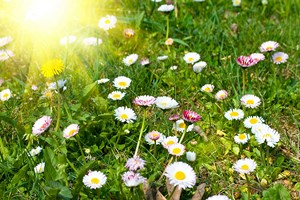
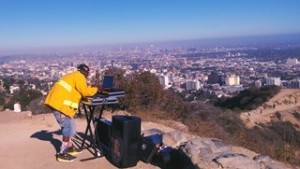
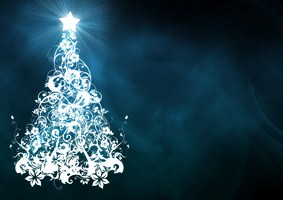
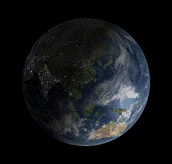 The Christmas holiday has its roots in
The Christmas holiday has its roots in 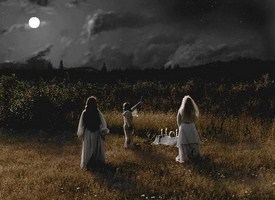
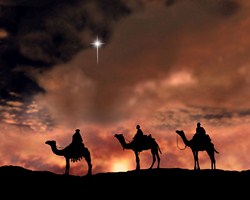 Whichever form of winter celebration we consider, each has held a function of bringing individuals together to strengthen the group. While every person is unique and important as an individual, by virtue of being the planet’s most social species, we derive our greatest powers by working together in groups; and thus a tradition like Christmas, a
Whichever form of winter celebration we consider, each has held a function of bringing individuals together to strengthen the group. While every person is unique and important as an individual, by virtue of being the planet’s most social species, we derive our greatest powers by working together in groups; and thus a tradition like Christmas, a 